The inaugural PHBS-IER Conference, jointly organized by Peking University HSBC Business School (PHBS) and the International Economic Review (IER), took place at PHBS in Shenzhen, China, from December 22 to 23. Centered on the theme " Financial Frictions for Firms and Households: Implications for Economic Development and Government Policies," the conference attracted over 130 senior professors and young scholars from prestigious universities worldwide, including Princeton University, University of Pennsylvania, Boston University, University of Southern California, Emory University, University College London, The Chinese University of Hong Kong, Peking University, Tsinghua University, Fudan University, and Cheung Kong Graduate School of Business. Furthermore, the live-streamed sessions garnered a cumulative audience of over 8,600 viewers, which showcased the great influence of PHBS and IER.
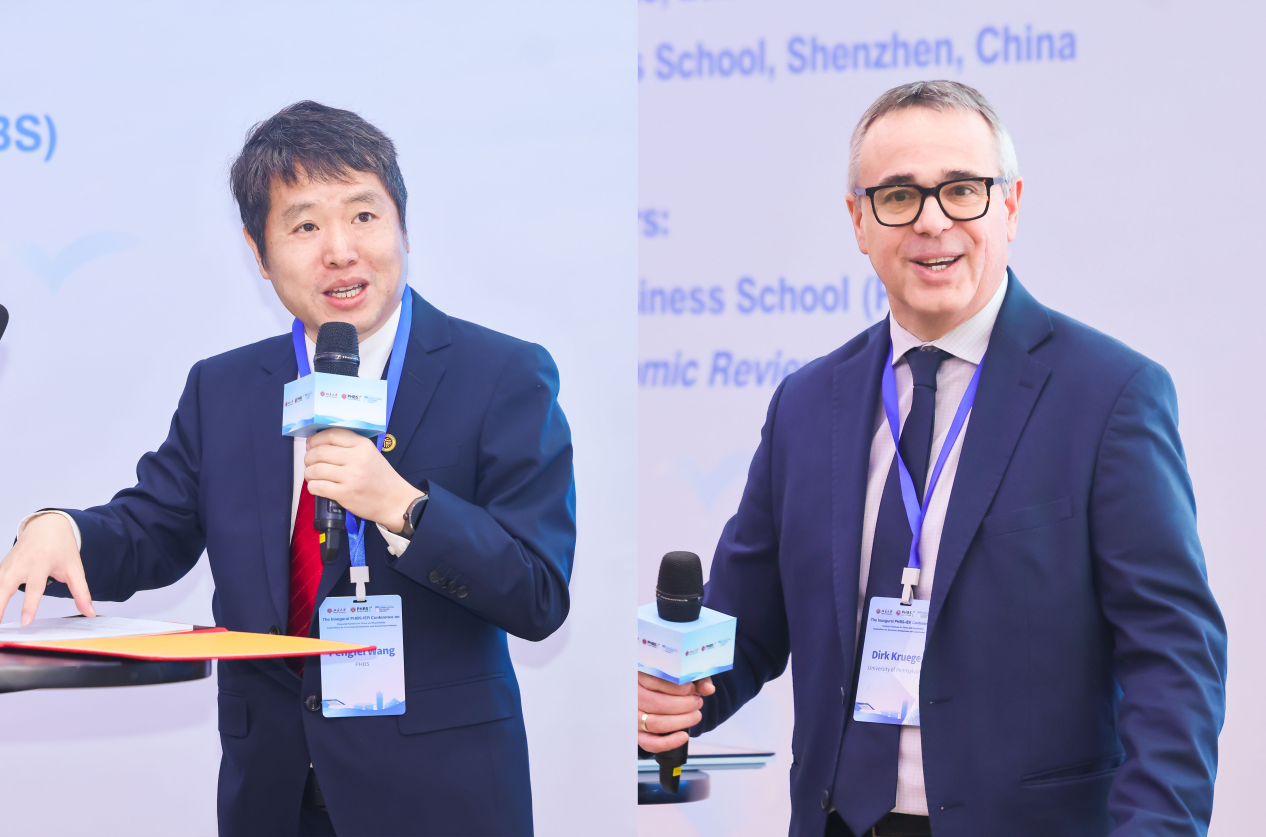
Wang Pengfei and Dirk Krueger
Wang Pengfei, Peking University Boya distinguished professor and dean of PHBS, and Dirk Krueger, professor at the University of Pennsylvania and editor-in-chief of IER, each delivered speeches on behalf of the organizers.
Professor Wang expressed his gratitude to the IER editorial board, faculty members, and student volunteers for their exceptional efforts in organizing the conference. He shared his hope that the event would become a premier academic platform, not only for Shenzhen but also for the entire country and the world, further elevating the international influence of PHBS and IER. Professor Krueger thanked both the participants and organizers, highlighting the distinguished academic contributions of Professor Thomas Sargent. He also expressed his hope that IER would continue to attract outstanding research in the future.
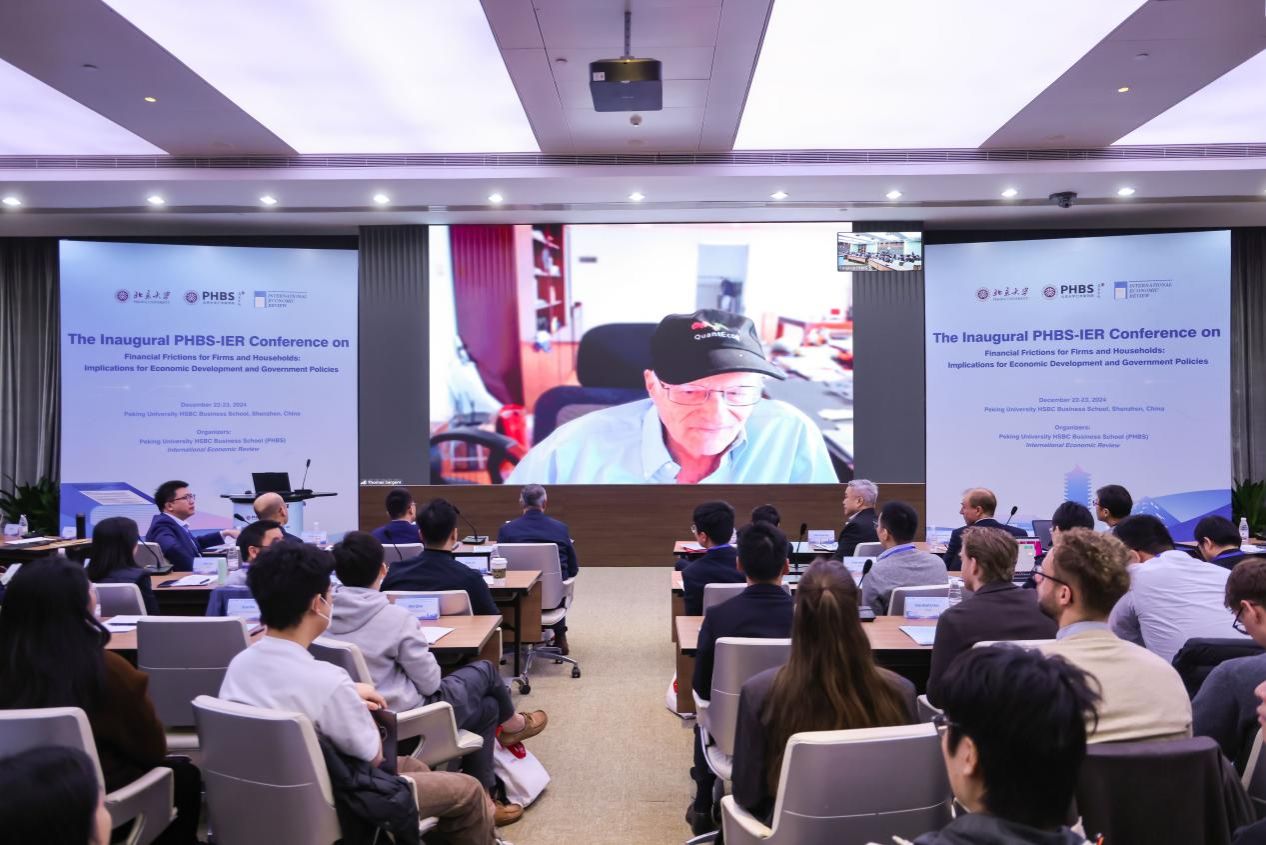
Thomas Sargent delivers the keynote
Professor Thomas Sargent delivered the keynote address on the topic “Fiscal Consequences of the US War on COVID.” He began by tracing the historical evolution of U.S. fiscal and monetary policy from the 19th to the 21st century. Professor Sargent examined the early development of financial and monetary systems in 19th-century America, the establishment of U.S. dollar dominance in the 20th century, and the fiscal and monetary challenges faced in the 21st century, including ongoing deficits and inflationary pressures. He highlighted the long-term impact of wars on fiscal and monetary policy, noting that such crises often lead to fiscal deficits, significant price volatility, and enduring institutional changes. Furthermore, Professor Sargent discussed the complex interactions between fiscal, monetary, and tax policies, particularly emphasizing the role of "game theory" in shaping policymaker decisions. He underscored the importance of "budget constraints," "coordination between monetary and fiscal policies," and "power distribution" in managing these challenges.
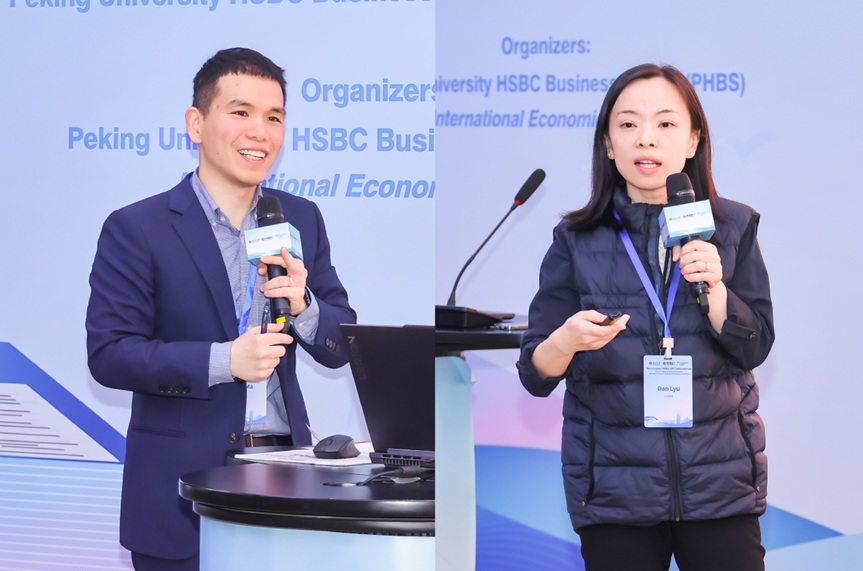
Ma Xiao and Lyu Dan
PHBS Assistant Professor Ma Xiao presented a paper titled “How Do Multinationals Impact China’s Technology? The Role of Quid Pro Quo Policy and Technology Spillovers.” The paper quantitatively assessed the influence of multinational corporations on China’s technological development from a technological perspective, revealing that foreign direct investment (FDI) has facilitated significant technology transfers and large-scale technology spillovers. To explore this, the paper developed a global trade and innovation model, incorporating the effects of the “Quid Pro Quo” policy on China’s economy. The findings showed that removing the “Quid Pro Quo” policy would directly boost China’s economic output but would also lead to a decline in its knowledge stock. Assistant Professor at Lyu Dan from the Chinese University of Hong Kong provided comments on the paper, addressing issues such as stylized facts, model mechanisms, and algorithms.
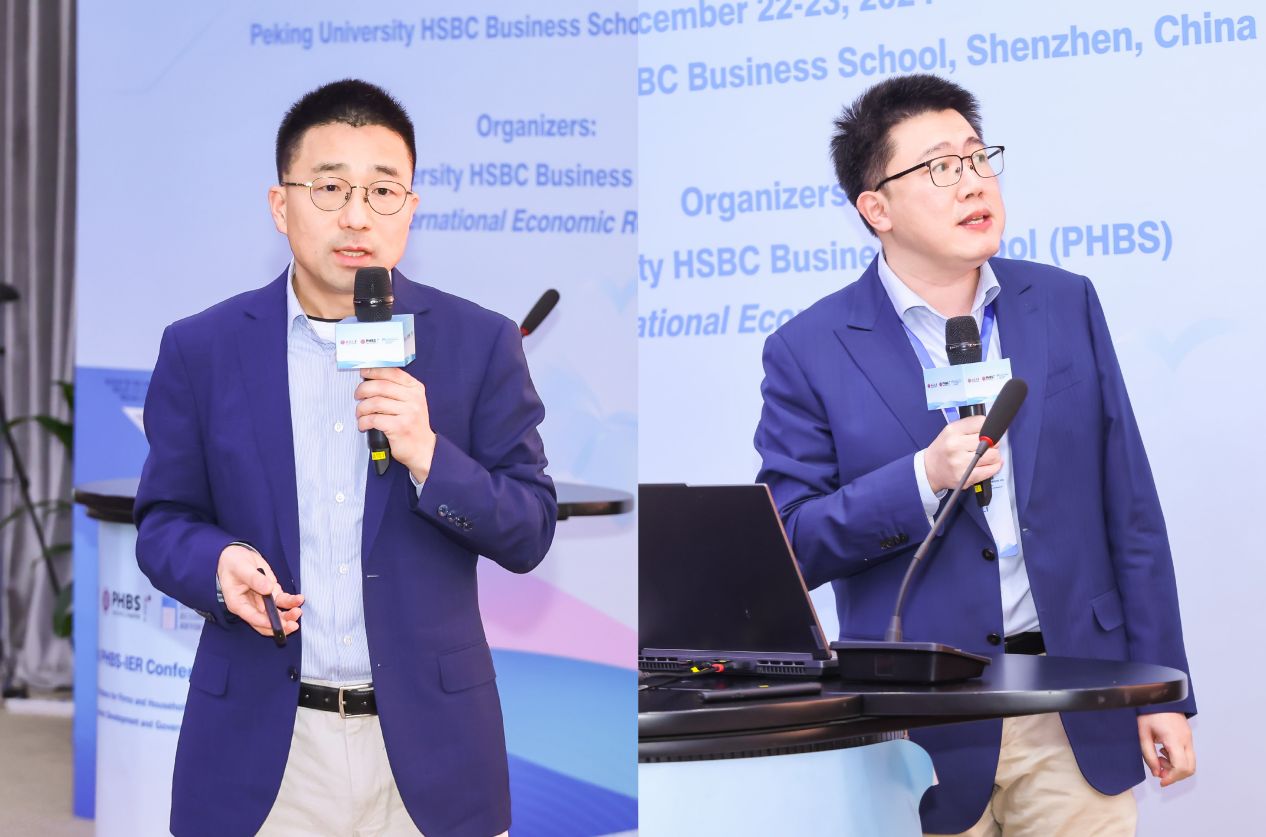
Wang Neng and Li Kai
Wang Neng, professor at Cheung Kong Graduate School of Business, presented the paper titled “Reallocating and Pricing Illiquid Capital: Two Productive Trees.” The paper developed a two-sector general equilibrium growth model that incorporates capital accumulation and adjustment costs. In this model, consumers face a trade-off between the benefits of diversification and the costs of redistribution and productivity losses. The allocation of capital between the two sectors influences key economic factors such as the risk-free rate, the risk premium, investment, and Tobin’s Q, both at the sectoral and aggregate levels. Through this framework, Professor Wang highlighted the critical role of sectoral heterogeneity and capital mobility in driving economic growth and asset pricing. Li Kai, professor and assistant dean of PHBS, noted that this framework could provide valuable insights into a range of topics, including the important risk premium channel that drives business cycles, changes in the aggregate risk premium in financial markets, and the risk-return tradeoff across different sectors.
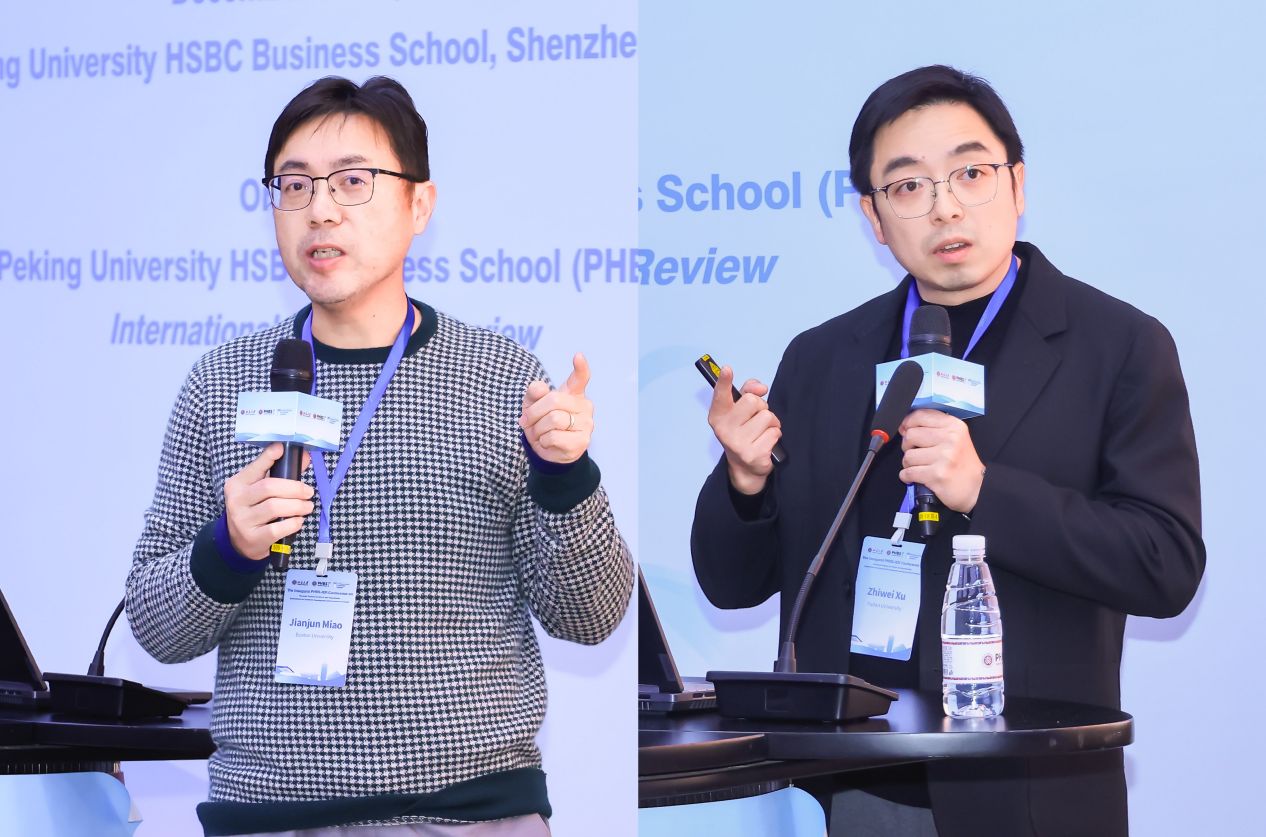
Miao Jianjun and Xu Zhiwei
Professor Miao Jianjun from Boston University, presented the paper titled “Inflation and Debt Rollover under Low Interest Rates.” Using a New Keynesian model with overlapping generations, the paper explored the impact of both temporary and permanent increases in fiscal deficits financed through debt rollover policies, particularly when interest rates are lower than economic growth rates. The findings revealed that while the debt rollover policy can be feasible within the monetary regime, it results in very slow-moving debt. Specifically, this policy leads to persistent inflation in response to a temporary increase in fiscal deficits, but causes persistent disinflation when the fiscal deficit increase is permanent. Professor Xu Zhiwei from Fudan University provided feedback on the paper, offering suggestions such as addressing the issue of multiple equilibria in the model and examining the welfare effects of debt expansion policies.
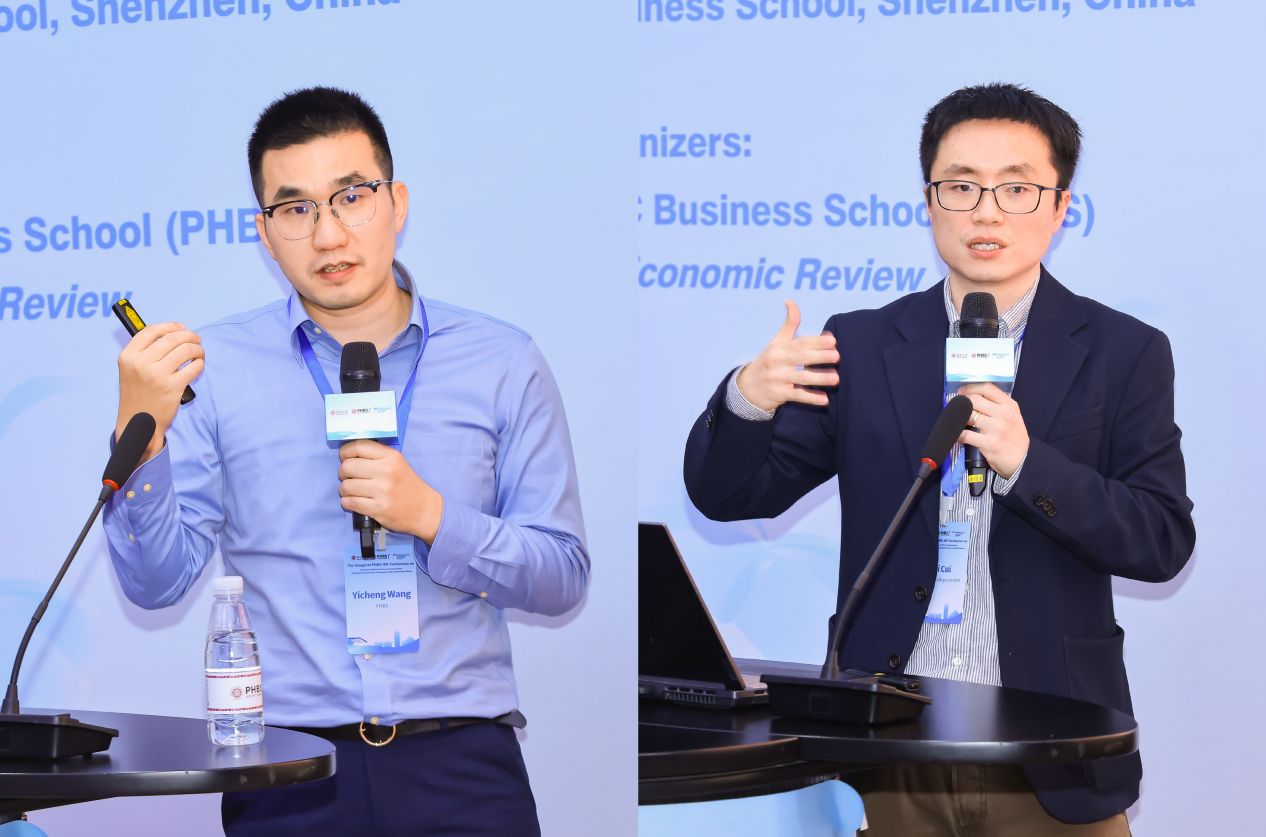
Wang Yicheng and Cui Wei
PHBS Assistant Professor Wang Yicheng presented the paper “Quantifying the Macroeconomic Impact of Credit Expansions,” which examines and quantifies how credit expansion influences economic activity by analyzing demand and supply channels. Using a New Keynesian model with heterogeneous agents in a small open economy, the paper highlights that in the short run, expansionary credit shocks primarily affect household demand, while in the long run, reduced corporate borrowing costs play a crucial role in fostering new business investment. Associate Professor Cui Wei from University College London recommended further exploration for the impact of different forms of financial frictions on the model mechanism. Associate Professor Cui Wei from University College London recommended further exploration for the impact of different forms of financial frictions on the model mechanism.
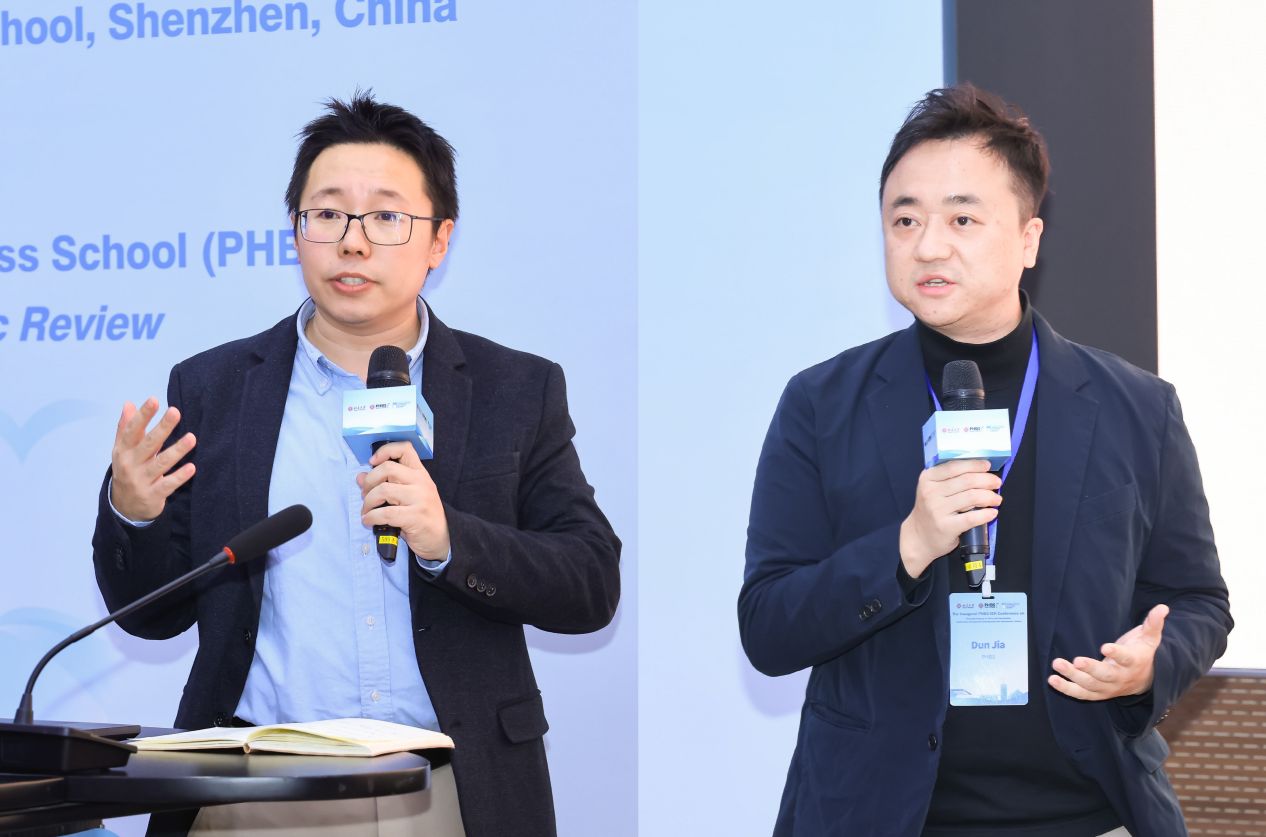
Dong Feng and Jia Dun
Dong Feng, tenured associate professor of the School of Economics and Management at Tsinghua University, presented the paper titled “A Macroeconomic Model of Structural Monetary Policy in China.” After providing an overview of the history and current state of structural monetary policy (SMP), the paper developed a quantitative DSGE model based on China’s two-sector economy to examine the transmission of SMP. It highlighted the importance of assessing the effectiveness of SMP in conjunction with other conventional monetary policy tools. Professor Feng argued that SMP could be more effective than traditional monetary policies in mitigating the redistributive effects of credit shocks. PHBS Assistant Professor Jia Dun offered feedback on the paper, suggesting that the model should incorporate the coordination between monetary and fiscal policies and provide additional empirical evidence to support the assumptions and mechanisms underpinning the model.
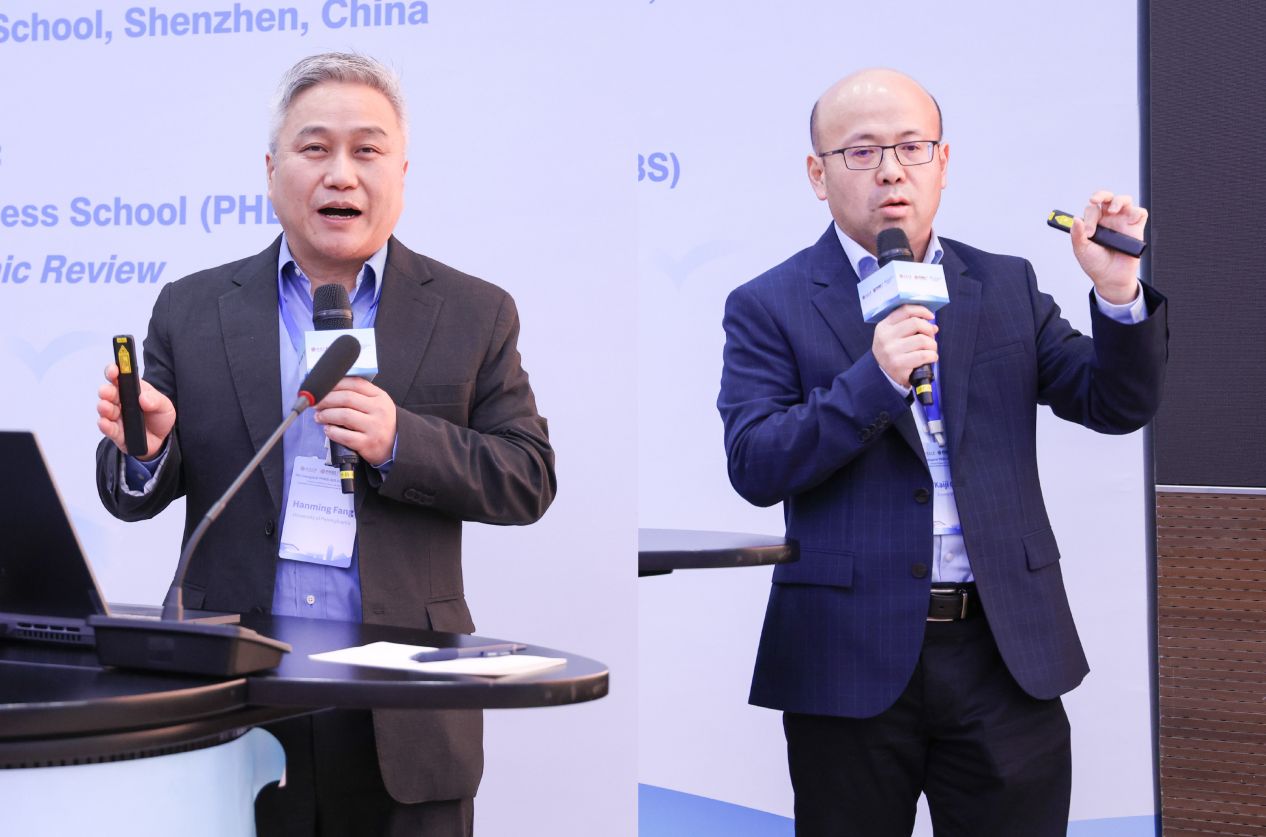
Fang Hanming and Chen Kaji
Professor Fang Hanming from the University of Pennsylvania presented the paper titled "Collateral-Based Monetary Policy: Evidence from China." The paper used the People’s Bank of China’s June 2018 policy, which expanded the eligible collateral for medium-term lending facilities (MLF), as a natural experiment to examine the causal impact of collateral-based unconventional monetary policy on asset prices and corporate financing costs. Using a triple-difference approach and leveraging China’s dual bond markets, the study found that the policy significantly reduced both secondary market interest rate spreads and primary market financing costs for the targeted bonds, while also triggering spillover effects on non-targeted bonds. Professor Chen Kaiji from Emory University praised the paper's innovative methodology and suggested further differentiation between collateral-based and conventional monetary policies, as well as stronger empirical validation of market segmentation and a deeper exploration of spillover mechanisms.
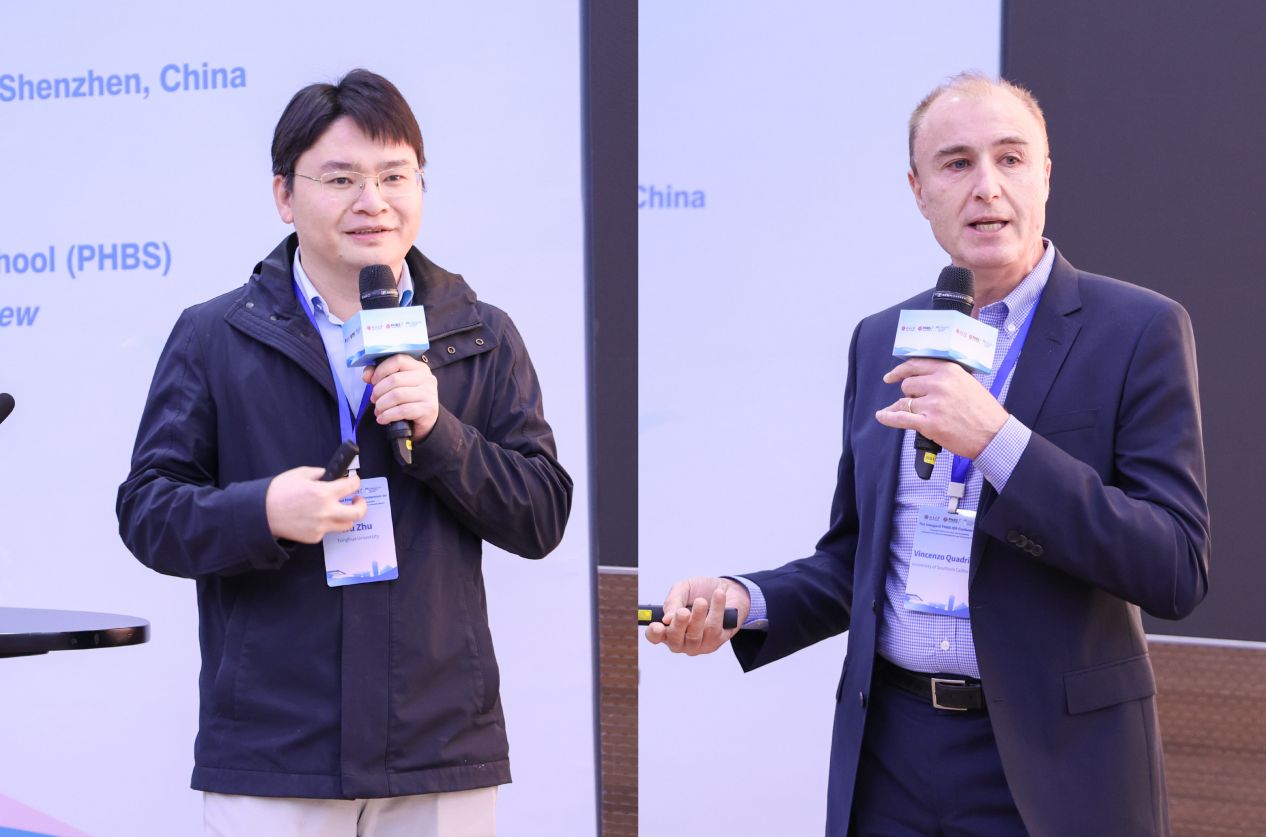
Zhu Wu and Vincenzo Quadrini
Assistant Professor Zhu Wu from Tsinghua University presented the paper titled "Tiered Intermediation in Equity-Holding Networks." The study examined how financial shocks propagate through equity-holding networks in China, using a comprehensive dataset that covered all registered firms in the country. The findings showed that parent companies transmit bank credit shocks to their subsidiaries, while redistribution between subsidiaries, or from subsidiaries back to parent companies, is minimal. The paper emphasized that tiered intermediation plays a key role in efficiently allocating resources to financially constrained firms with high investment opportunities, offering valuable insights for resource optimization and policy design. Professor Vincenzo Quadrini from the University of Southern California suggested further investigation into inter-subsidiary resource redistribution and its potential effects on macroeconomic stability, as well as a comparison with international banking systems to draw broader policy implications.
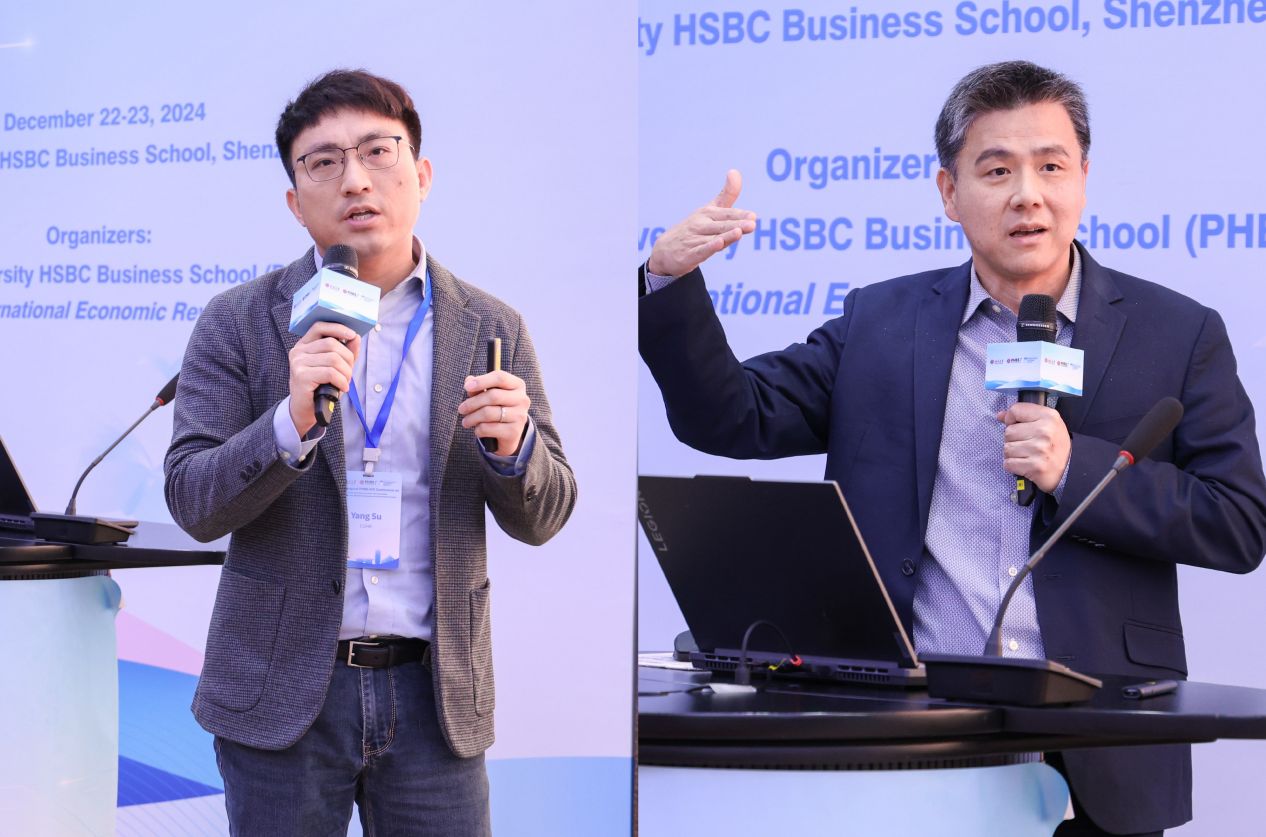
Su Yang and Xiong Wei
Assistant Professor Su Yang from the Chinese University of Hong Kong presented the paper titled "Mobility and Housing: Cash Resettlement in China’s Shantytown Renovation." The study explored how cash-based resettlement during China’s 2015-2018 shantytown renovation program affected intercity migration and housing market dynamics by alleviating household financial constraints. Using data from China Development Bank loans and population censuses, the authors found that cash resettlement significantly prompted migration from lower-priced to higher-priced cities, exacerbating housing price disparities. Professor Xiong Wei from Princeton University recommended further investigation into the unintended consequences of policy design and suggested enhancing the explanatory power of the data to better understand immigration behaviors.
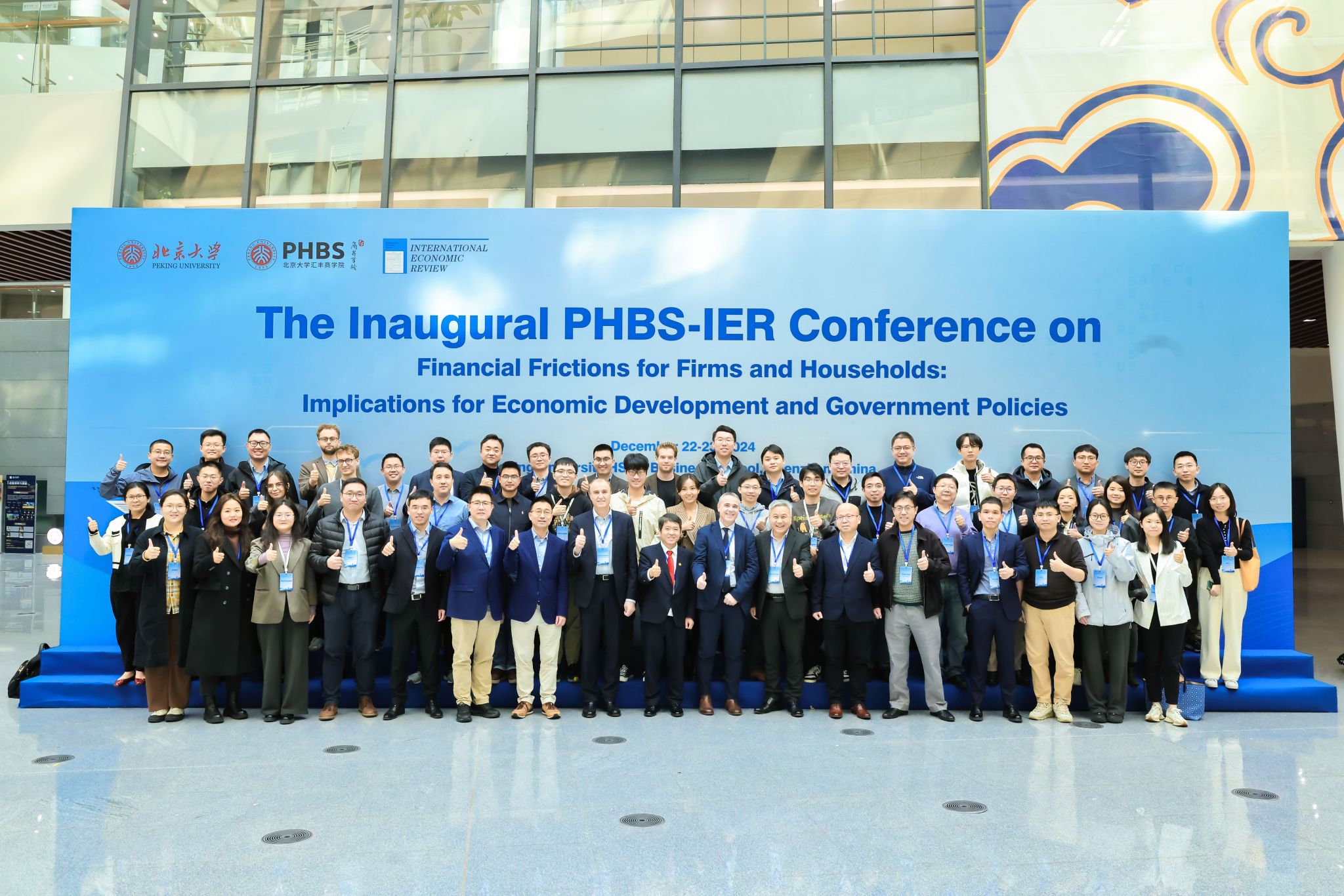
The group photo of the participants
The conference, which garnered widespread attention and participation from the public, received a total of 211 high-quality paper contributions through an open call for submissions. Among these, eight were ultimately selected for inclusion, six of which were featured in a Special Issue of the IER. Chen Kaiji, Fang Hanming, Dirk Krueger, Li Kai, and Wang Pengfei formed the organizing and editorial team for this special issue and were present at the conference. Leveraging this opportunity, PHBS and IER aim to deepen their collaboration, establishing an annual exchange platform that will ignite research vitality, promote high-level economic research, and contribute valuable insights to the advancement of economics in Asia and across the globe.
Source:PHBS Research Office and Public Relations & Media Office
By Hu Weiping, Yu Qi, Sun Bo, and Annie J

























